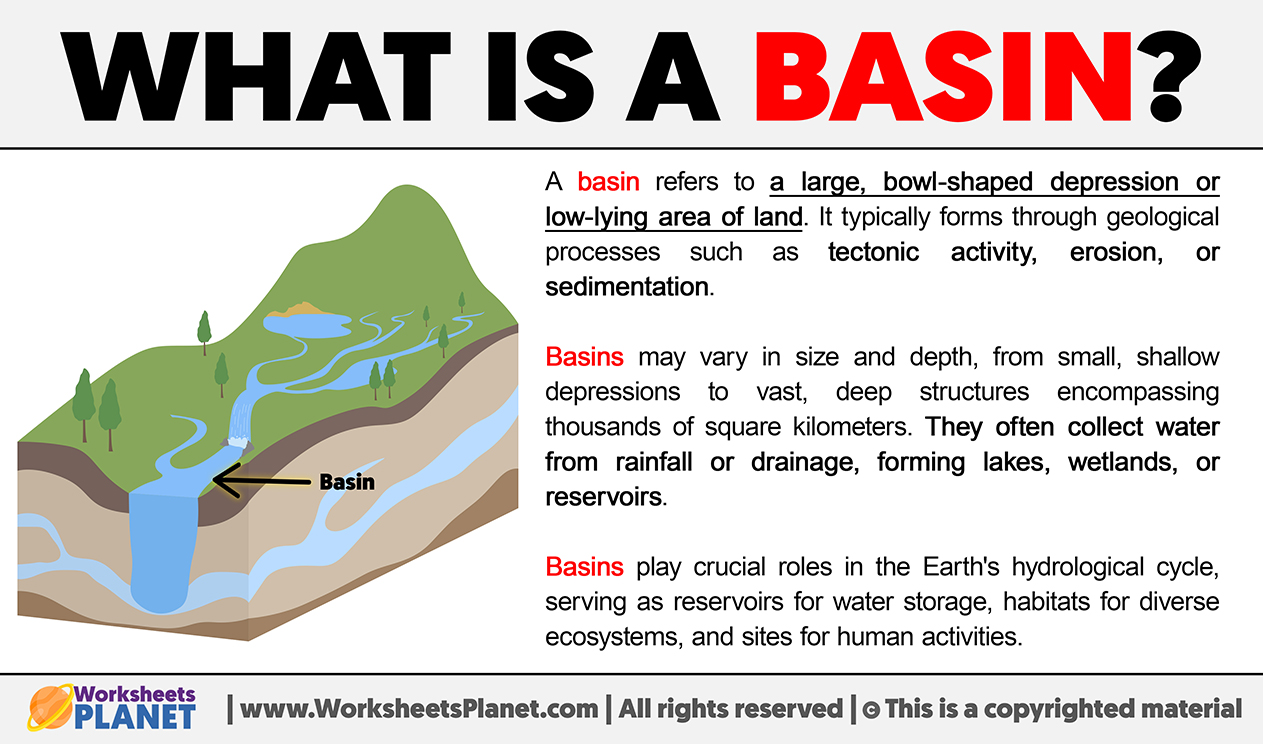A basin refers to a large, bowl-shaped depression or low-lying area of land. It typically forms through geological processes such as tectonic activity, erosion, or sedimentation.
Basins may vary in size and depth, from small, shallow depressions to vast, deep structures encompassing thousands of square kilometers. They often collect water from rainfall or drainage, forming lakes, wetlands, or reservoirs.
Basins play crucial roles in the Earth‘s hydrological cycle, serving as reservoirs for water storage, habitats for diverse ecosystems, and sites for human activities.


